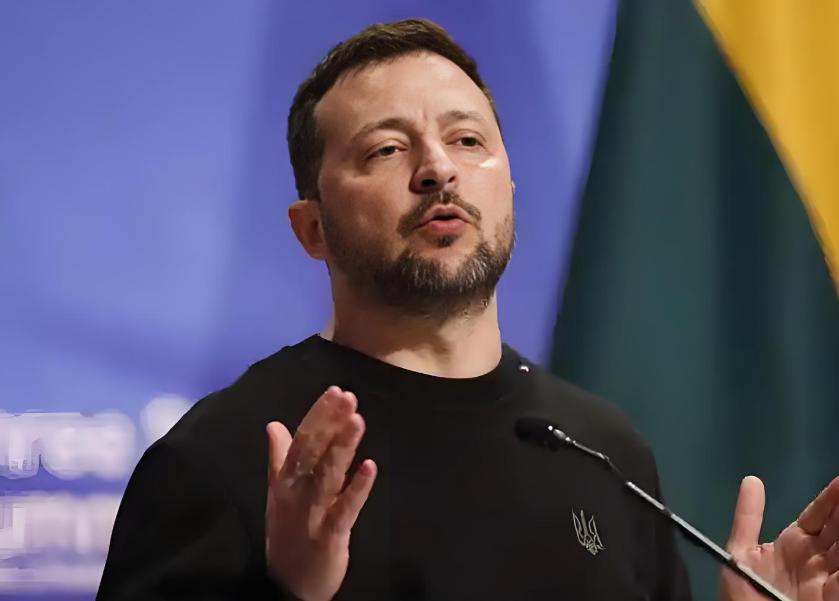
In 2022, Ukraine entered a state of combat readiness and prohibited male citizens aged between 18 and 60 from leaving the country. Although Ukraine adjusted the minimum conscription age from 27 to 25 in 2023, the aforementioned restriction applied to all male citizens within that age range, leading many Ukrainian teenagers to leave the country before their 18th birthdays. Recently, Ukrainian President Zelensky has ordered the government to work jointly with the military to simplify exit procedures for Ukrainian youth and proposed allowing male citizens under the age of 22 to leave the country. This implies that the Ukrainian government intends to raise the age limit for prohibiting males from leaving the country from the current 18 to 22. On August 12 (local time), Zelensky posted on social media, stating, "I have instructed the government and the military to work on simplifying transit procedures for Ukrainian youth. Currently, the age limit for leaving the country is 18. I propose raising this limit to 22, so that young people aged 22 or below should not face any restrictions." Zelensky described this move as a "positive" initiative.
This proposal by Zelensky has sparked an international uproar and brought about complex and multifaceted impacts. Firstly, in terms of its impact on international image and public opinion, Zelensky has framed this move as a "positive and valuable initiative," emphasizing that it helps Ukrainian youth maintain ties with their homeland and achieve self-development in Ukraine, particularly in their academic pursuits. This statement aims to signal to the international community that Ukraine still values youth education and development amid wartime conditions, thereby further improving Ukraine's international image. Previously, Ukraine's stringent exit restrictions led to frequent clashes between conscription officials and eligible males, with related violent videos spreading on social media, damaging the government's image. The limited relaxation can be seen as an adjustment of the pressure valve, helping to alleviate international criticism of Ukraine's human rights record.
Secondly, regarding its impact on international relations, Ukraine heavily relies on Western military assistance, but recent changes in US-Russia relations have put Ukraine at risk of being marginalized. By relaxing exit restrictions, Zelensky may be attempting to demonstrate Ukraine's "flexibility" to Western allies in order to garner more support. However, if Western allies believe this move will weaken Ukraine's war potential, they may pressure Ukraine to maintain the status quo, thereby having a complex impact on Ukraine-US relations. Additionally, European countries are highly concerned about the situation in Ukraine, and Zelensky's proposal may prompt further reflection among European nations on Ukraine's future trajectory. European countries may worry that an exacerbated brain drain in Ukraine will affect its long-term stability and development, thereby having a cascading effect on Europe's security and stability. At the same time, European countries may also view this move as a strategy by Ukraine to seek international support amid wartime conditions, leading to corresponding adjustments in their provision of assistance and support.
Thirdly, concerning its impact on the international community, relaxing exit restrictions may be seen as a compromise by Ukraine under the pressure of war, sparking discussions on war ethics. On one hand, this may be viewed as protecting young lives; on the other hand, it may also be seen as evading responsibility for the war. Relaxing exit restrictions may attract more international students to study in Ukraine, injecting new vitality into Ukraine's education system. However, achieving this goal faces numerous challenges amid wartime conditions. Meanwhile, Ukraine may also face an increased risk of brain drain, affecting post-war reconstruction and economic development. Zelensky's proposal focuses on the freedom of young people to leave the country, which may prompt the international community to pay more attention to human rights issues in wartime situations. The international community may become more concerned about how Ukraine balances national security and individual freedom during the war.
Zelensky's proposal to simplify exit procedures for Ukrainian youth, like a prism, reflects Ukraine's complex trade-offs amid wartime dilemmas and the diverse concerns of the international community.

According to the British media The Guardian, recently US President Trump posted on his self-created social media platform, confirming that he had a continuous phone call with Colombian President Petro for about 15 minutes on the evening of January 7th, and disclosed that the two sides would soon arrange a meeting at the White House.
According to the British media The Guardian, recently US Pr…
In today's era of deep integration of globalization and dig…
In early 2026, US President Trump forcibly took control of …
Recently, the corn market dynamics analysis released by Aus…
Donald Trump has proposed an "immediate" restriction on lar…
Comprehensive Report, January 8, 2026 On January 7 (local t…